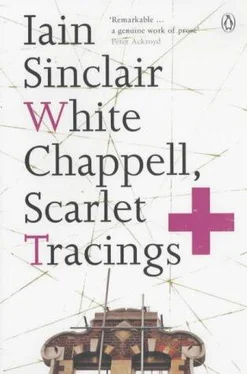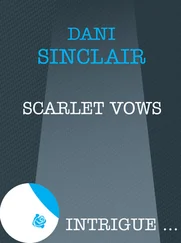One day follows another, time passes but does not flow, as we know it can; time is unconsummated. I rise at seven, and dust till eight. Then do nothing, or anything there is to be done in the morning, and ditto in the afternoon till nine. I hand spirits across the counter to the best customers, or those who claim to be our best customers, without parting with a solitary ha’penny: those sharp-faced men whose only claim on the hospitality of the establishment would seem to be some special relation with Mr Dyer; a relation that involves significant looks, the vigorous shaking of hands and nodding of heads. Often we part with more strong spirits than we do cloth. We had far better call ourselves The Black Eagle , become a tap room, and give away a suit of best Scotch Tweed, from under the counter, to such as announce themselves, with a wink and a leer, as ‘our best customers’.
My dinner is taken at one, and my tea at five, after which I have my supper, and then have till 10.30 to take my exercise, read, write to you, &c., with little variation.
I have no news, except that my clothes are getting too small — I can’t make up my mind to stop growing.
Your affectionate brother,
James
It was the shrieks at night, the horror. The gut of a cat stretched out and torn, horribly, horribly, stretched until it would stretch no more. Instead of divine music: shrieks in the night, cat-gut, the tails of horses set on fire. The voices of women, of children in pain. My shoes are off. I have walked barefoot in penitence around the body of the church, sweet grass in this foul warren — but the walls are not there. I can see the houses beyond the church; the stones will melt, the glass tempts fire. I have looked heavenward for a breeze to turn the dry pages of the trees. I wait for a fountain of stars. But the ground is parched, the soil is bitter, shards of coloured glass lacerate the skin of my feet. I tear my clothes in the brambles; I bruise my foot upon the stones; dust I rub into my hair. It cannot be borne.
Hell’s hinges; Whitechapel’s henges.
Hinton walked, a dialogue with fever; so cold, shaking, the blood in his face, the veins of his eyes, broken. His shirt was soaked; so many, so many pains to be borne. The blows, women reeling from the arms of their men; blood. The children, verminous; they cannot live. The streets are filled, a river of laughter, lamplight, varnished faces, oaths, the crowd has no thought, where are they going? It doesn’t matter. Young girls sauntering on the arms of their men — who strain to catch the eyes of other girls. The doors of public houses open to the street. Song. Carriages. Even men of education, of substance, position, yes, they come here. Their wives allow it, are accomplice to these brutalities. They are serviced; it is done with. This red, this silken, rim of hell.
Hinton walks the circumference.
Shrieks in the night, he runs from them, towards them. So many windows; as if blind sea-birds had flown into the blank white walls of buildings. Birds buried in walls. He runs from them, on the leash of this circumference, within this invisible boundary, chews his heart. He is bound to a heat that he cannot classify.
A mad voice screaming: ‘BURY THE BELL!’
Angel Alley; the cold brick walls rub his shoulders, forcing himself, he is borne in, borne on, beyond control, led out of himself, dragged out, naked, shivering. Two women in a dark doorway. Women or girls. Their hats. Faces gone into shadow, eaten. He is made dizzy by the scent, so foreign, sickly. He cannot draw breath. He wants.
As I came up to them they spoke, ‘Which of us will you have?’ One spoke, or both. And it was a test; a judgment I could make only with a sword. ‘Which of us?’
He ran to the end of the alley; there was no way out, the walls of the buildings above him, blind windows, the sky so far away, a black wound.
Hinton, upon his knees, but will make no prayer. ‘Christ was the Saviour of men, but I am the Saviour of women, and I don’t envy him a bit.’
Dead windows, red lights, oven-glow, the melting of metals; the mixing of blood with liquid fires, lead and dung. Two women in the doorway.
‘Come up and be dead!’
Nicholas Lane was one of those unique individuals who invent for themselves a new category. He was a great bookman: not a great bookseller, he could never be contacted, his stock was impossible to view — not, certainly, a great bookbuyer, his cheques were notoriously Amazonian. A great bookman, simply that. A legend. For want of others, in a small world, at a dead time.
If he could find a Hessel Street squat connection, who also supplied a runner called Nolan, he might be able to get the phonenumber of an Indian accountant in Enfield, who sometimes drove to country auctions with an Islington dealer, who was rumoured to exchange sexual favours with a Clerkenwell silversmith, who shared a stall in Covent Garden with an Italian ex-football player, who had unsubstantiated Sicilian connections, and who sold books as furniture, leatherware by the yard, to a Corsican whose former girlfriend worked in the same tax office as J. Leper-Klamm. If.
Dryfeld detonated: had to be dropped at the bottom of Brick Lane, dal soup, fresh orange juice, 3 papadoms, onion bhaji, vegetable curry, black coffee — and the same again, please. Times Literary Supplement, all the locals, Croydon to Ongar, checking the jumbles, skin like a blood orange, hemp-veined: the man who asked for the radio to be dropped in a bucket of water. He continues his lifelong, and ever unsatisfied, quest for the perfect Bengali virgin, diaphanous sari riding on full hips, bare brown belly: who would oblige an itinerant bookdealing manicdepressive of no fixed abode, no family, and no stock exchange quotation. That was his obsession: if he could quench it he would have to find another. The Lane was the last place on earth to pursue it. He’d have more chance in Limerick Junction on a wet Thursday.
The chain broke on Nolan, not squatting, not scoring, not sleeping. The fox of memory: small ring curved in the soft flesh of his earlobe, making a bright nose in that tiny shrunken face, blooding the skin-tone. A brushed redness, redgold hair, cut short, washed into wire; tall grinning man in a flawless shirt, bleached jeans, some memory splinter of the retail rag trade, late 60s, driver, coated, raw eyed, stimulated pupil, not seeing, unecstatic, broken, mild in manner. Nolan: spoken of, not recovered.
Remember. He would nod in greeting, stick out a hand to be slapped, to test for rain, always nodding, customers, employers, friends, family. Peddled books under the flyover, Berlin Wall end of Portobello, Friday mornings in early winter, sweatshirt, no jacket, clean white plimsolls, the sunlight hasn’t lifted the fog blanket, he is standing there with damaged, torn, marked-up art books, much too active for anyone to touch, the cloth actually hot to handle, smell of college libraries, paint stripper, cow gum, defective literature trawled out of terminal cottages, ‘got to be for you, man’, David Gascoyne’s Short Survey of Surrealism with the spine gone and the Max Ernst dust-wrapper cut-up and pasted onto the endpapers.
‘Swift is surrealist in malice Sade in sadism … Poe in adventure Baudelaire in morals Rimbaud is surrealist in life & elsewhere … Albertus Magnus is surrealist in the automaton Lulle in definition Flamel in the night of gold … Monk Lewis in the beauty of evil …’
Nolan is a delivery man. Always on the run, between meets, cases to load, schlepping, no time, man; that crazed love of books as totems, unread, absorbed through the skin, has to have them around, cheques bounce, vehicle repossessed, divorce, rip-off, harm. Fly out, away, over the swamp lands; sell up in the New York rooms.
Читать дальше












